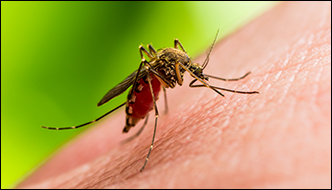
Dealing with insect bites involves taking measures to alleviate discomfort, reduce swelling, and prevent potential complications. Here's a guide on how to deal with insect bites:
- Wash the affected area: Clean the area around the insect bite with mild soap and water to reduce the risk of infection. Gently pat the area dry with a clean towel.
- Reduce swelling and itching: Apply a cold compress or an ice pack wrapped in a cloth to the bite area for about 10 to 15 minutes. This can help reduce swelling, itching, and provide temporary relief.
- Over-the-counter remedies: Consider applying over-the-counter topical creams or ointments specifically designed for insect bites. These may contain ingredients like hydrocortisone or calamine lotion, which can help relieve itching and reduce inflammation.
- Antihistamines: If the bite causes significant itching or discomfort, oral antihistamines (available over-the-counter) can provide relief. Follow the recommended dosage instructions and consult a healthcare professional if you have any concerns or specific medical conditions.
- Avoid scratching: Although it can be difficult, try to resist scratching the bite area. Scratching can further irritate the skin, increase the risk of infection, and prolong the healing process.
- Keep the area clean: Maintain good hygiene around the bite area. Wash the area with mild soap and water daily, and avoid using harsh chemicals or strong soaps that can irritate the skin further.
- Avoid allergic reactions: If you experience severe symptoms, such as difficulty breathing, dizziness, or swelling of the face, lips, or throat, it could indicate an allergic reaction. In such cases, seek immediate medical attention or call emergency services.
- Natural remedies: Some natural remedies may provide relief for insect bites. For example, applying a paste made from baking soda and water, aloe vera gel, or diluted tea tree oil might help soothe the affected area. However, it's important to note that individual responses to natural remedies may vary, and it's advisable to consult a healthcare professional before using them.
- Prevention: To prevent insect bites, use insect repellents, wear protective clothing (such as long sleeves, pants, and socks), and avoid areas where insects are commonly found, especially during peak activity times.
If the symptoms worsen, the bite becomes infected, or you have concerns about a specific type of insect bite (e.g., tick bites or bee stings), it's advisable to seek medical attention promptly. Healthcare professionals can provide appropriate treatment and guidance based on the severity of the bite and your specific circumstances.
